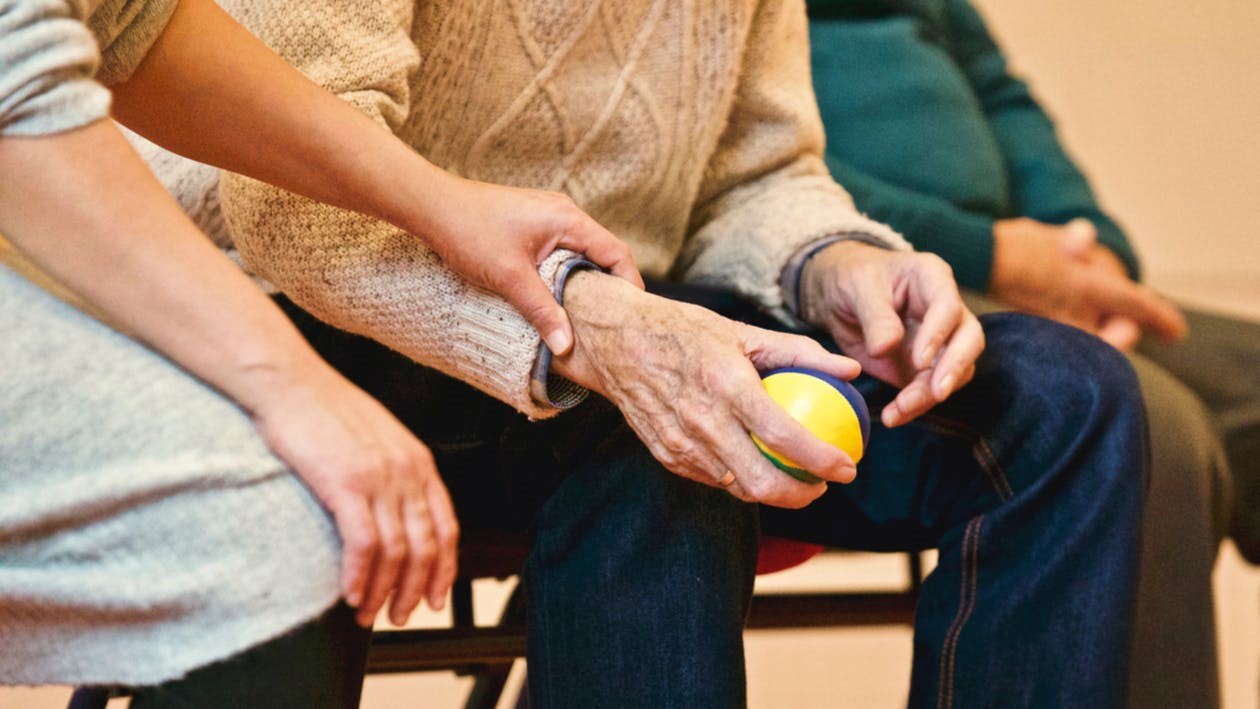
When a person requires residential accommodation, a local authority care needs assessment of their finances is required in order to determine how the accommodation will be paid for. With the costs of care home accommodation ranging from £575 to £900 per week on average, it is not surprising that the rules relating to charging cause much controversy.
The following discusses the rules in Wales for charging for care home accommodation. Although similar, there are separate rules relating to charging for care home accommodation in England.
How Are Funds Assessed?
If a person has capital over £50,000 and is not eligible to receive NHS continuing care funding, they are considered to be ‘self-funding,’ meaning that they have to pay the full cost of residential accommodation.
There are complex rules relating to what capital is taken into account in order to assess whether a person is self-funding. According to Gov.UK, capital is regarded as:
- Savings
- Any lump-sums or one-off payments received
- Investments (in businesses or personal pension schemes, for example)
- Property
- A beneficial interest in the capital of a trust
Some types of capital may be disregarded. For example, a property will not be taken into account for the first twelve weeks that a person is in a home. This means that, where a person’s main asset is their property and their savings are under £50,000, he or she will not be ‘self-funding’ for the first twelve weeks. Furthermore, property continues to be disregarded if it is occupied by:
1. the resident’s partner; or
2. a relative who is aged 60 or over; or
3. a relative aged 16 or under and a child whom the resident is liable to maintain; or
4. a relative who is incapacitated
Even if a person is self-funding, there is a still a duty on the local authority to provide advice, guidance and assistance on the type of care they require and services available.

Will Your Local Authority Pay for Care?
If a person has capital amounting to less than £50,000 then their income (apart from a small personal allowance) is paid towards the cost of their care fees and the local authority pay the remaining cost. When it comes to paying for care, this is known as the ‘threshold’.
Income can be considered as:
- Interest on savings
- Private/state pension
- Some benefits (pension credit, attendance allowance, part of Disability Living Allowance or Personal Independence Payment)
Although this would normally mean that the local authority funds the majority of the care home fees, the resident’s wishes and preferences over the choice of accommodation should still be taken into account as long as:
1. the accommodation appears to the authority to be suitable; and
2. the cost of making the financial arrangements would not require the authority to pay more than it would usually expect to pay having regard to the assessed needs.
Where a person’s preferred accommodation is more expensive than the accommodation proposed by the authority, he or she may require the authority to provide that accommodation subject to a third party (often a relative) paying the difference.
The third-party ‘top-up’ fee is the difference between the cost which the authority would usually have expected to pay for someone with the individual’s assessed need and the full standard rate of the accommodation that the resident prefers. However, the authority must not set arbitrary ceilings on the amount they would pay and relatives should not routinely be required to make up the difference between what the authority will pay and the actual cost of the home.
Will the NHS Pay for Care?
There is an overlap between the duty of the local authority to provide care home accommodation and the duty of the NHS.
The NHS has certain duties to persons who are the responsibility of the local authority or who are self-funding. It is the responsibility of the NHS to provide, where necessary, community health services to residents of local authority and independent residential care homes on the same basis as for those who live in their own home. For example, the provision of district nurses is paid for by the NHS.
The NHS also has a duty to pay for the cost of providing nursing care by a registered nurse in a nursing home. Consequently, in Wales, every nursing home resident should receive the same contribution towards their fees from the NHS regardless of how much capital they have (in Wales the contribution is currently £165.56 per week).
Furthermore, where a person’s primary need is for healthcare, there is a duty on the NHS to accommodate people in care homes under continuing NHS healthcare guidelines. If a person is assessed as requiring NHS continuing care, then the full cost of their nursing home fees will be paid by the NHS and this does not depend on whether or not someone has capital over £50,000.

Whether a person is eligible for NHS continuing healthcare is often the subject of debate. Eligibility for NHS funding is also assessed by the local authority, and there are 4 levels of care prescribed according to eligibility criteria.
Critical - A person’s need would be considered critical if they were unable to carry out most or all of their personal care, causing a major risk to their independence, for example.
Substantial - Substantial need would be considered if an individual had lost control over many aspects of their home environment.
Moderate - A person’s need would be thought moderate if they were unable to carry out some personal care, daily household chores, or manage their home environment.
Low - Those with low need would be unable to manage one or two aspects of their personal care and their daily chores are difficult to manage.
Again, this list is not exhaustive.
The NHS will contribute varying amounts towards the cost of residential care depending on an individual’s need. If a person is assessed as requiring NHS continuing care, then the full cost of care will be paid for by the NHS regardless of the capital they hold.
At the heart of the issue over who is responsible for paying for accommodation is the distinction between social care and health care. In the case of Coughlan, the Court of Appeal held that the local authority can only lawfully fund low-level nursing care. The court indicated that the decision as to whether the NHS or the local authority provides the care depends on the overall quality and quantity of nursing required, not the type of nursing services required.
The following conditions may amount to a person having unpredictable, complex and intense health needs which would make him or her eligible for NHS continuing care funding:
- Poor mobility
- Inability to self-medicate
- Breathing difficulties
- Poor sleeping pattern
- Poor skin tissue
- Swallowing difficulties
- Inability to communicate and express needs
- High level of confusion, disorientation
- Diagnosis of mental illness or psychiatric illness
- Challenging behaviour, aggression or anxiety
- Risk of causing harm to self or to others
- Being prone to infections
Often, families are unaware that the NHS should be paying for some, or all, of their care, which leads to considerable overpayment. In cases where families have overpaid, they may be due a full or partial refund. If you believe you, or a member of your family, have been incorrectly assessed or charged, get in touchfor legal assistance.
Also, if you or your relative is due to go into care, remember you don’t have to rely on the NHS to accurately assess your case. Howells Solicitors can provide advice on completing assessment forms and preparing medical paperwork and can accompany you to review meetings to ensure a better chance of success.

Protecting Assets
There is no fool-proof way of avoiding the value of your home being taken into account by means-testing, due to the anti-avoidance measures. There are several methods of protecting your assets, if you have a substantive reason for doing this. The most popular of these is setting up a family trust. However, If a local authority believes that an asset has been given away with the intention of creating or increasing entitlement to means-tested benefits, it may decide that the donor has notional capital of equivalent value to that of the asset given away.
At Howells Solicitors, we do not usually recommend that clients make an outright gift of their family home, even to their children. However, we acknowledge that every case is different, so please do get in touch if you are considering this option, there may be better ways of protecting your assets.
So, Ultimately, Who Will Likely Pay?
It is not easy to summarise the rules relating to charging for care home accommodation and professional advice should be taken if you are in doubt. However, as a general rule, where the primary need is a health need, then the responsibility to pay the care home fees is that of the NHS, even where the individual has been placed in a home by the local authority or has capital over £23,250.
Where the person’s needs are only ancillary or incidental to the provision of accommodation that the local authority is under a duty to provide, then the local authority is responsible for the care home fees subject to a person’s income and capital.
Even if the person is not eligible for NHS continuing care funding, he or she may still be eligible to receive a weekly contribution to their fees from the NHS if he or she resides in a nursing home and requires the services of a registered nurse.
If any of the above information indicates that you or a member of your family has been incorrectly assessed/charged, please get in touch with our solicitors for the elderly.

